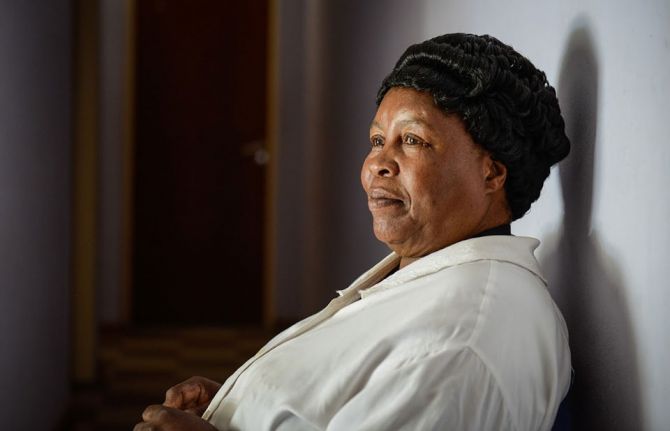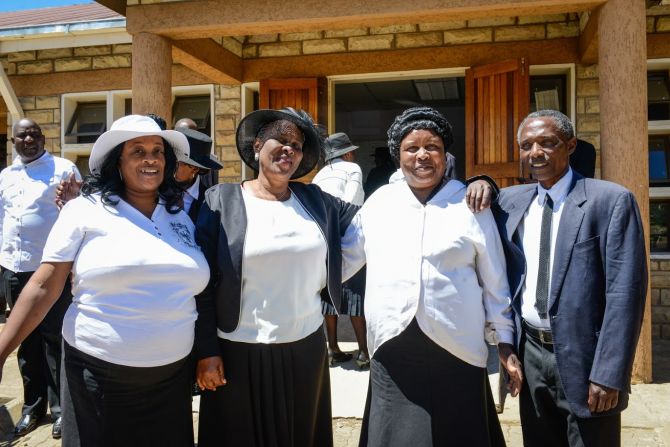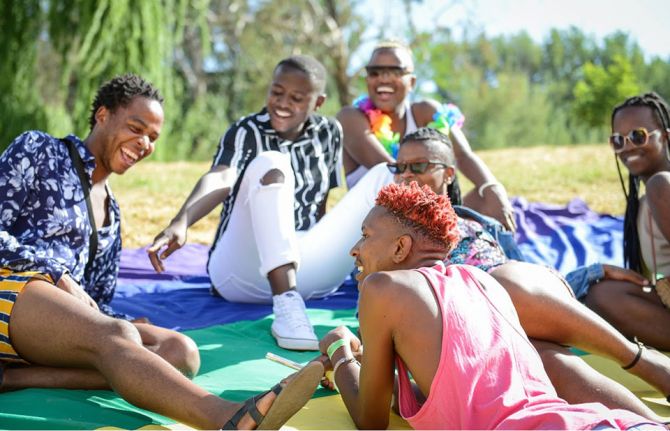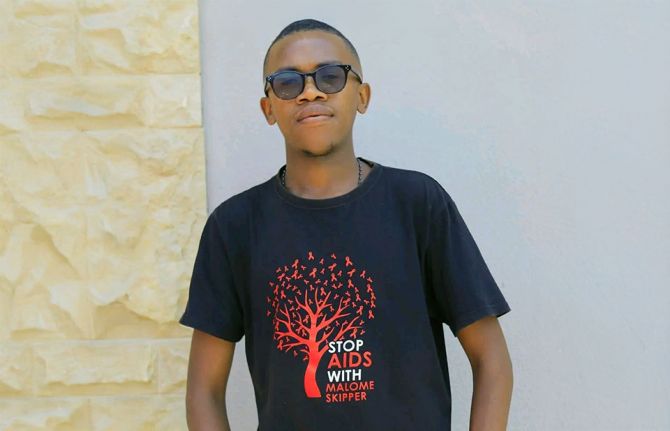



Feature Story
A grandmother’s transformative love for her transgender grandchild
20 May 2021
20 May 2021 20 May 2021Mampolokeng Mosolo is the picture of a dignified, proud African gogo (granny). Dressed in her Sunday best—pressed white shirt, knee-length black pencil skirt, impeccable hair and sensible heels—Ms Mosolo commands a soft power during the Khoelenya Community Council meeting in Mohale’s Hoek, a remote area in the west of Lesotho.
The council members are discussing sexual and reproductive health and rights. Ms Mosolo addresses her peers on the council with the quiet assurance of someone who has been on a life-changing journey she could not have imagined for herself as a younger woman.
When Ms Mosolo first found out that her grandchild—who was assigned female at birth and she raised as a girl—identified as a boy, she thought Mpho had been sucked into a satanic cult.
“I didn’t take it very well to hear that my grandchild thought of herself as a transgender boy,” Ms Mosolo says, a term she heard for the first time when Mpho broke the news of his gender identity to her.
When Mpho was 16 years old he would wear trousers to school as the institution’s policy gave girls the option to wear dresses or slacks.
“When girl students were then told to wear dresses, he refused and stopped going to school,” Ms Mosolo says.
Mpho eventually went back to school later that year to take exams but failed his assessments. He dropped out and then went to a local vocation school to learn sewing. That did not last long either, Ms Mosolo says, as her grandchild faced stigma and discrimination from students and teachers for being a member of the lesbian, gay, bisexual, transgender and intersex (LGBTI) community.
Tampose Mothopeng, a Mosotho activist and human rights defender, says LGBTI people in the small mountainous country often face a backlash from their families, peers and members of the broader community.
“LGBTI people face a lot of challenges daily,” he says. “Rejection, limited access to health-care services, stigma and discrimination and psychological issues. For instance, the health-care system is designed by the very system that rejected you. We must challenge the system until it sees us as human beings,” he emphasizes.
Mr Mothopeng runs the People’s Matrix Association, a community-based organization that advocates for LGBTI and gender-nonconforming people in Lesotho. Mr Mothopeng says it is essential to have a community driving its own mandate, otherwise organizations cannot fully understand, “the true challenges that communities are going through.”
“Without passion there is no way we can sustain volunteerism,” he continues. “Communities can stand up for their rights better than others. We need communities running their own projects.”
Indeed, Ms Mosolo and Mpho’s relationship took a positive turn after Ms Mosolo was referred to the People’s Matrix Association after attending a local HIV and gender-based violence workshop in her community, where issues of sexual orientation and gender identity were raised, and she wanted to know more.
“I received training from the People’s Matrix Association. I then sat Mpho down and said, “My child, I have accepted this because this is something that exists. They say that you are born with it and that you feel it in your blood,”” she says.
The People’s Matrix Association works with a wide range of partners to conduct sensitization workshops on LGBTI issues and works closely with faith-based organizations in Lesotho to foster a culture of acceptance between the church and LGBTI people.
The Khoelenya Community Council works in partnership with Phelisanang Bophelong, a community-based organization that provides HIV prevention and treatment support to people living with HIV. PB, as it is known locally, with the support of UNAIDS, supports the council to run HIV, sexual and reproductive health and rights and gender-based violence sensitization dialogues with the local community.
Through this forum Ms Mosolo was further exposed to LBGTI people and, through this experience, came to understand her grandchild better.
Mpho is now 23 years old and works in Cape Town, South Africa. Ms Mosolo hopes he will return home to Lesotho one day. She says she would like to build him and his future wife a home on her land. “I would rest knowing Mpho has a place to call his own,” she says.
Ms Mosolo’s journey has brought her a great deal of acceptance, a quality she promotes to her peers on the council and to people in her community. She too has become a human rights defender.
“As people we need to accept and embrace that this is here. I have seen with my own eyes that some men fall in love with men. We need to embrace it for children to progress with their lives,” she says.



